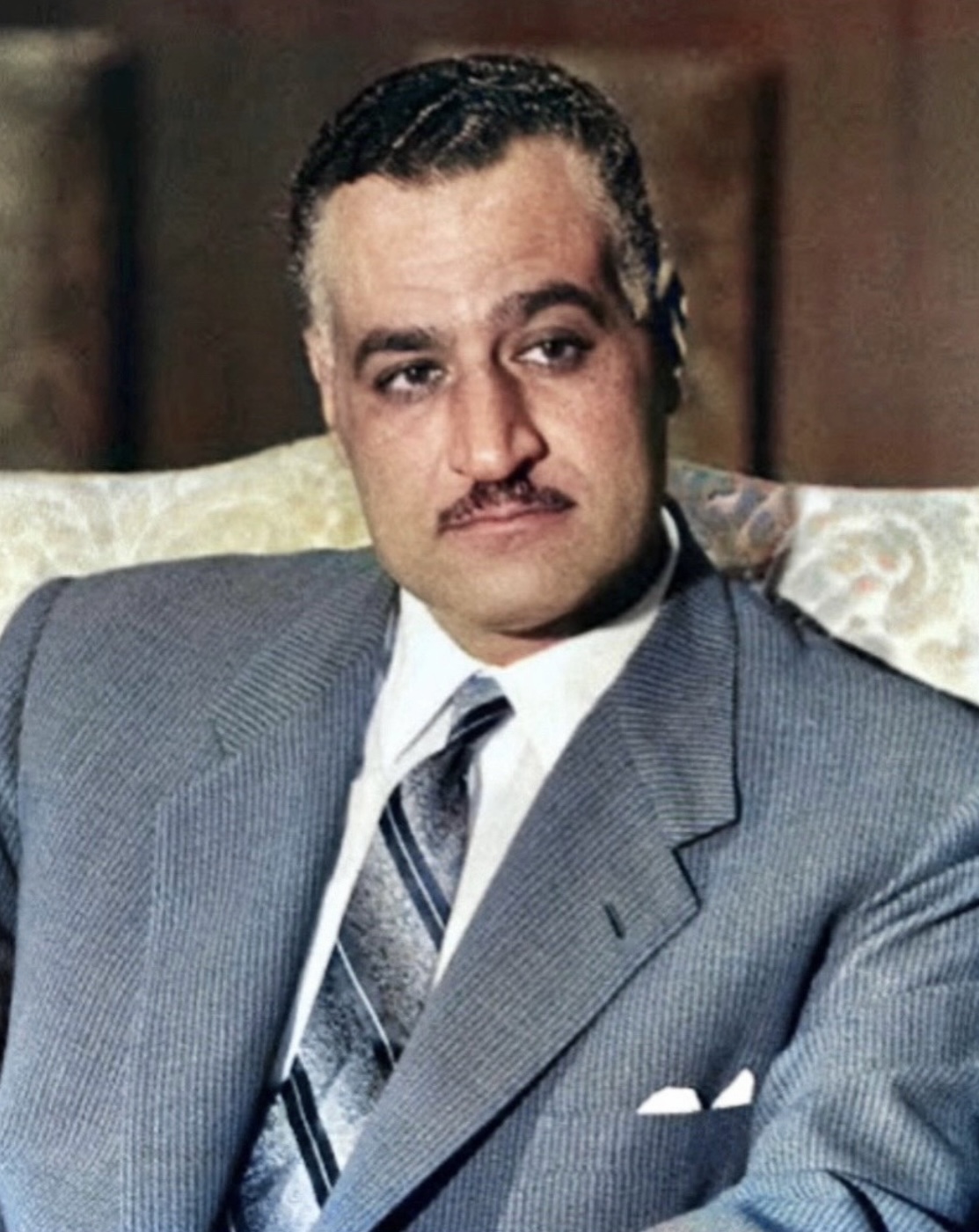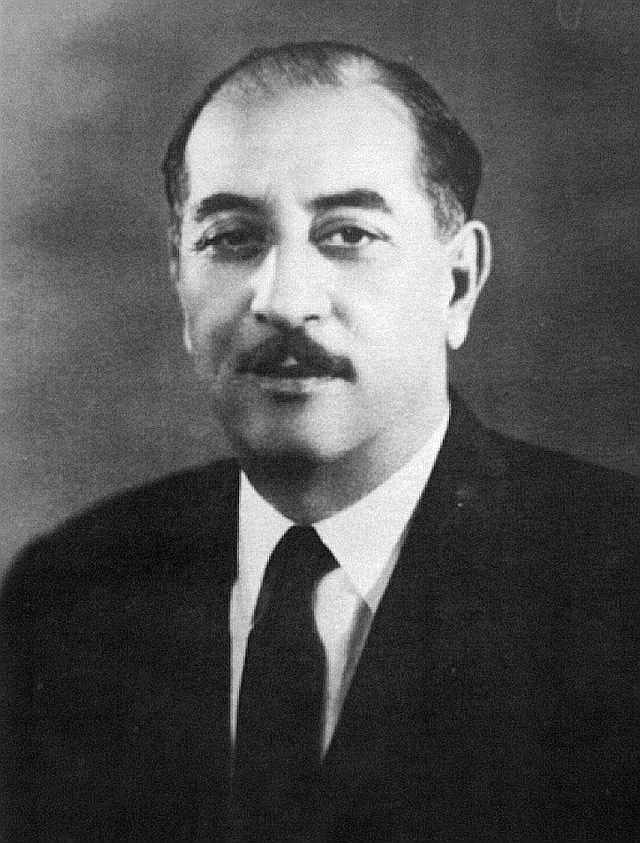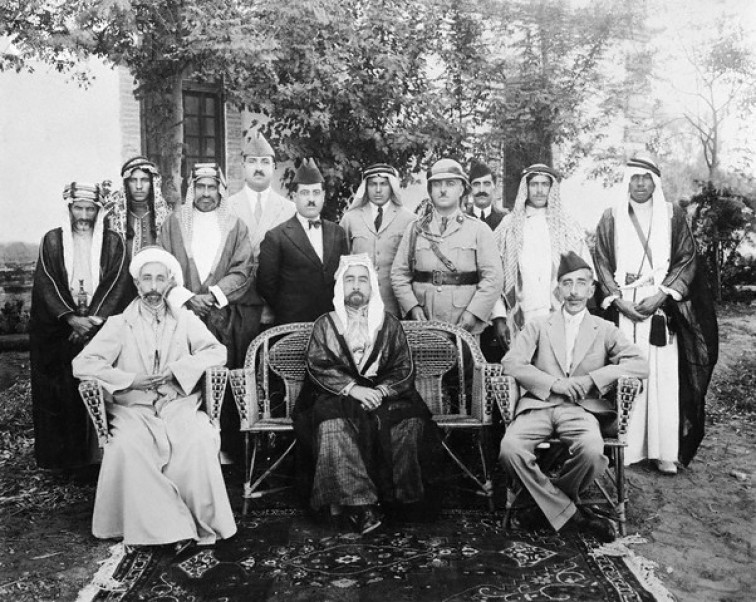|
Iraqi Coup D'état Of 1968
The 17 July Revolution () was a bloodless coup in Iraq in 1968 led by Ahmed Hassan al-Bakr, Abd ar-Razzaq an-Naif, and Abd ar-Rahman al-Dawud that ousted President Abdul Rahman Arif and Prime Minister Tahir Yahya and brought the Iraqi Regional Branch of the Arab Socialist Ba'ath Party to power. Ba'athists involved in the coup as well as the subsequent purge of the moderate faction led by Naif included Hardan al-Tikriti, Salih Mahdi Ammash, and Saddam Hussein, the future President of Iraq. The coup was primarily directed against Yahya, an outspoken Nasserist who exploited the political crisis created by the June 1967 Six-Day War to push Arif's moderate government to nationalize the Western-owned Iraq Petroleum Company (IPC) in order to use Iraq's "oil as a weapon in the battle against Israel." Full nationalization of the IPC did not occur until 1972, under the Ba'athist administration. In the aftermath of the coup, the new Iraqi government consolidated power by denouncing ... [...More Info...] [...Related Items...] OR: [Wikipedia] [Google] [Baidu] |
Arab Cold War
The Arab Cold War ( ''al-ḥarb al-`arabiyyah al-bāridah'') was a political rivalry in the Arab world from the early 1950s to the late 1970s and a part of the wider Cold War. It is generally accepted that the beginning of the Arab Cold War is marked by the 1952 Egyptian revolution, Egyptian Revolution of 1952, which led to Gamal Abdel Nasser becoming president of Egypt in 1956. Thereafter, newly formed Arab republics, inspired by revolutionary secular Arab nationalism, nationalism and History of Egypt under Gamal Abdel Nasser, Nasser's Egypt, engaged in political rivalries with conservative Traditionalist conservatism, traditionalist Arab monarchies, influenced by Saudi Arabia. The Iranian revolution, Iranian Revolution of 1979, and the ascension of Ruhollah Khomeini, Ayatollah Ruhollah Khomeini as leader of Iran, is widely seen as the end of this period of internal conflicts and rivalry. A new era of Iran–Saudi Arabia proxy conflict, Arab-Iranian tensions followed, overshadow ... [...More Info...] [...Related Items...] OR: [Wikipedia] [Google] [Baidu] |
List Of Presidents Of Iraq
This is a list of President of Iraq, presidents of Iraq since the 14 July Revolution, formation of the First Republic of Iraq in 1958. List of officeholders Timeline See also * List of kings of Iraq * President of Iraq * Vice President of Iraq * Prime Minister of Iraq ** List of prime ministers of Iraq References {{DEFAULTSORT:List Of Presidents Of Iraq Government of Iraq Presidents of Iraq, Lists of national presidents, Iraq, List of presidents of Lists of Iraqi politicians, Presidents ... [...More Info...] [...Related Items...] OR: [Wikipedia] [Google] [Baidu] |
Hashemites
The Hashemites (), also House of Hashim, are the royal family of Jordan, which they have ruled since 1921, and were the royal family of the kingdoms of Hejaz (1916–1925), Syria (1920), and Iraq (1921–1958). The family had ruled the city of Mecca continuously from the 10th century, primarily as vassals of outside powers, and ruled the thrones of the Hejaz, Syria, Iraq, and Jordan following their World War I alliance with the British Empire. The family belongs to the Dhawu Awn, one of the branches of the Ḥasanid Sharifs of Mecca, also referred to as Hashemites. Their eponymous ancestor is traditionally considered to be Hashim ibn Abd Manaf, great-grandfather of the Islamic prophet Muhammad. Another claimed ancestor is Ali ibn Abi Talib, the usurped successor of the prophet Muhammad according to Shia Islam. The Ḥasanid Sharifs of Mecca (from whom the Hashemite royal family is directly descended), including the Hashemites' ancestor Qatadah ibn Idris, were Zaydī Shīʿas ... [...More Info...] [...Related Items...] OR: [Wikipedia] [Google] [Baidu] |
Faisal II Of Iraq
Faisal II (; 2 May 1935 – 14 July 1958) was the last King of Iraq. He reigned from 4 April 1939 until July 1958, when he was killed during the 14 July Revolution. This regicide marked the end of the thirty-seven-year-old Hashemite monarchy in Iraq, which then became a Iraqi Republic (1958-1968), republic. The only son of King Ghazi and Queen Aliya of Iraq, Faisal acceded to the throne at the age of three after his father was killed in a car crash. A regency was set up under his uncle Prince 'Abd al-Ilah. In 1941, a 1941 Iraqi coup d'état, pro-Axis coup d'état overthrew the regent. The British responded by initiating an Anglo-Iraqi War, invasion of Iraq a month later and restored 'Abd al-Ilah to power. During the Second World War, Faisal was evacuated along with his mother to the United Kingdom. There, he attended Harrow School alongside his cousin Hussein of Jordan, Hussein, the future List of kings of Jordan, King of Jordan. The regency ended in May 1953 when Faisal came of ... [...More Info...] [...Related Items...] OR: [Wikipedia] [Google] [Baidu] |
14 July Revolution
The 14 July Revolution, also known as the 1958 Iraqi military coup, was a ''coup d'état'' that took place on 14 July 1958 in Iraq, resulting in the toppling of King Faisal II and the overthrow of the Hashemite-led Kingdom of Iraq. The Iraqi Republic established in its wake ended the Hashemite Arab Federation between Iraq and Jordan that had been established just six months earlier. The Kingdom of Iraq had been a hotbed of Arab nationalism since the Second World War. Unrest mounted amid economic malaise and widespread disapproval of Western influence, which was exacerbated by the formation of the Baghdad Pact in 1955, as well as Faisal's support of the British-led invasion of Egypt during the Suez Crisis. Prime Minister Nuri al-Said's policies were unpopular, particularly within the military ranks. Opposition groups began to organize in secret, modelling themselves after the Egyptian Free Officers Movement that overthrew the Egyptian monarchy in 1952. Pan-Arabic senti ... [...More Info...] [...Related Items...] OR: [Wikipedia] [Google] [Baidu] |
Soviet Union
The Union of Soviet Socialist Republics. (USSR), commonly known as the Soviet Union, was a List of former transcontinental countries#Since 1700, transcontinental country that spanned much of Eurasia from 1922 until Dissolution of the Soviet Union, it dissolved in 1991. During its existence, it was the list of countries and dependencies by area, largest country by area, extending across Time in Russia, eleven time zones and sharing Geography of the Soviet Union#Borders and neighbors, borders with twelve countries, and the List of countries and dependencies by population, third-most populous country. An overall successor to the Russian Empire, it was nominally organized as a federal union of Republics of the Soviet Union, national republics, the largest and most populous of which was the Russian SFSR. In practice, Government of the Soviet Union, its government and Economy of the Soviet Union, economy were Soviet-type economic planning, highly centralized. As a one-party state go ... [...More Info...] [...Related Items...] OR: [Wikipedia] [Google] [Baidu] |
1969 Baghdad Hangings
1969 ( MCMLXIX) was a common year starting on Wednesday of the Gregorian calendar, the 1969th year of the Common Era (CE) and ''Anno Domini'' (AD) designations, the 969th year of the 2nd millennium, the 69th year of the 20th century, and the 10th and last year of the 1960s decade. Events January * January 4 – The Government of Spain hands over Ifni to Morocco. * January 5 – Ariana Afghan Airlines Flight 701 crashes into a house on its approach to London's Gatwick Airport, killing 50 of the 62 people on board and two of the home's occupants. * January 14 – An explosion aboard the aircraft carrier USS ''Enterprise'' near Hawaii kills 28 and injures 314. * January 16 – First successful docking of two crewed spacecraft in orbit and the first transfer of crew from one space vehicle to another (by a space walk) between Soviet craft Soyuz 5 and Soyuz 4. * January 18 – Failure of Soyuz 5's service module to separate correctly causes a near-fatal re-entry (not public ... [...More Info...] [...Related Items...] OR: [Wikipedia] [Google] [Baidu] |
Israel
Israel, officially the State of Israel, is a country in West Asia. It Borders of Israel, shares borders with Lebanon to the north, Syria to the north-east, Jordan to the east, Egypt to the south-west, and the Mediterranean Sea to the west. Israeli-occupied territories, It occupies the Occupied Palestinian territories, Palestinian territories of the West Bank in the east and the Gaza Strip in the south-west. Israel also has a small coastline on the Red Sea at its southernmost point, and part of the Dead Sea lies along its eastern border. Status of Jerusalem, Its proclaimed capital is Jerusalem, while Tel Aviv is the country's Gush Dan, largest urban area and Economy of Israel, economic center. Israel is located in a region known as the Land of Israel, synonymous with the Palestine (region), Palestine region, the Holy Land, and Canaan. In antiquity, it was home to the Canaanite civilisation followed by the History of ancient Israel and Judah, kingdoms of Israel and Judah. Situate ... [...More Info...] [...Related Items...] OR: [Wikipedia] [Google] [Baidu] |
Iraq Petroleum Company
The Iraq Petroleum Company (IPC), formerly known as the Turkish Petroleum Company (TPC), is an oil company that had a virtual monopoly on all oil exploration and production in Iraq between 1925 and 1961. It was jointly owned by some of the world's largest oil companies and headquartered in London, England. In June 1972, the Ba'athist government in Iraq nationalized the IPC, and its operations were taken over by the Iraq National Oil Company. The company "Iraq Petroleum Company" still remains extant, although only in paper form. One associated company – the Abu Dhabi Petroleum Company (ADPC, formerly Petroleum Development (Trucial Coast) Ltd) – also continues with its original shareholding intact. The related Iraq Petroleum Group was an association of companies that played a major role in the discovery and development of oil resources in areas of the Middle East outside Iraq. History Turkish Petroleum Company The forerunner of the Iraq Petroleum Company (IPC) ... [...More Info...] [...Related Items...] OR: [Wikipedia] [Google] [Baidu] |
Six-Day War
The Six-Day War, also known as the June War, 1967 Arab–Israeli War or Third Arab–Israeli War, was fought between Israel and a coalition of Arab world, Arab states, primarily United Arab Republic, Egypt, Syria, and Jordan from 5 to 10June 1967. Military hostilities broke out amid poor relations between Israel and its Arab neighbors, which had been observing the 1949 Armistice Agreements signed at the end of the 1948 Arab–Israeli War, First Arab–Israeli War. In 1956, regional tensions over the Straits of Tiran (giving access to Eilat, a port on the southeast tip of Israel) escalated in what became known as the Suez Crisis, when Israel invaded Egypt over the Israeli passage through the Suez Canal and Straits of Tiran, Egyptian closure of maritime passageways to Israeli shipping, ultimately resulting in the re-opening of the Straits of Tiran to Israel as well as the deployment of the United Nations Emergency Force (UNEF) along the Borders of Israel#Border with Egypt, Egypt ... [...More Info...] [...Related Items...] OR: [Wikipedia] [Google] [Baidu] |
Nasserism
Nasserism ( ) is an Arab nationalism, Arab nationalist and Arab socialism, Arab socialist List of political ideologies, political ideology based on the thinking of Gamal Abdel Nasser, one of the two principal leaders of the Egyptian Revolution of 1952, and Egypt's second President of Egypt, President. Spanning the domestic and international spheres, it combines elements of Arab socialism, republicanism, secularism, nationalism, anti-imperialism, Developing country, developing world solidarity, Pan-Arabism, and Non-Aligned Movement, international non-alignment. According to Mohamed Hassanein Heikal, Nasserism symbolised "the direction of liberation, socialist transformation, the people’s control of their own resources, and the democracy of the peoples working forces." Many other Arab countries have adopted Nasserist forms of government during the 20th century, most being formed during the 1960s, including Algeria under the National Liberation Front (Algeria), FLN and the Libya ... [...More Info...] [...Related Items...] OR: [Wikipedia] [Google] [Baidu] |







